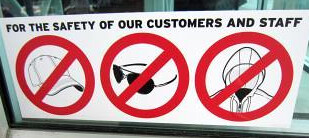from the how-can-you-be-against-that dept
With all of the
fighting over the Google Book settlement, it seems that an awful lot of people have lost sight of the key issue, which is that the tool itself, Google's Book Search, is
amazing. We had mentioned this a couple of years ago. But if you step back from any of the legal issues, and just think about Google's book search as a tool, you realize what a
wonderful cultural milestone it would be to make pretty much every book
searchable. The more you think about it, the harder it is to take seriously anyone who is against this project. It's the equivalent of saying we should burn down all libraries because authors
don't get paid every time someone checks out a book.
Luckily, even as the legal dispute continues, we're starting to see
more people realize
what a terrible thing it would be to
kill off such a valuable resource. In that last link, law professor Peter Friedman not only discusses the Google Books project, but also Scribd, and makes a key point:
Why would you use copyright to stifle marvelous new innovations? Copyright exists to encourage, not stifle, invention.
What's scary about the discussions on the settlement, though, is that they don't seem to focus on this at all. Instead, almost all of them seem to be a weak excuse to
attack Google because people don't like -- or don't like having to compete with -- Google.
Now, I've been clear since the day the settlement was announced that I thought it was a
bad thing -- but not for the reasons most are stating. I thought it was bad because Google had a strong case for claiming that the project was covered by fair use. It was effectively no different than creating a fantastic card catalog -- again, something that should be encouraged. But, as Tim Lee brilliantly notes in a recent post, even if this whole lawsuit was over "fair use," what was so troubling about the settlement was that it
deals with a bunch of other issues and sort of ignores the fair use issue! And yet, that was the center of the lawsuit.
In case we've forgotten, this is a copyright infringement case. The dispute between Google and the plaintiffs is not about orphan works, online book sales, or the structure of the publishing industry. It's about whether copyright's fair use doctrine allows the creation of a book search engine that displays "snippets" of in-copyright books in search results. Google says yes. Some publishers and authors said no. Absent a settlement, a judge would have been asked to rule on that question.
In a rational world, the settlement of the case would focus on that same question. Instead, we got a settlement in which the underlying infringement claims are treated as an afterthought. Instead, the focus is on the creation of an elaborate new structure for selling books online. It's as if Sony Pictures sued NBC for copyright infringement and then wound up with a "settlement" that focused mostly on Sony becoming a partner in GE's light bulb business.
And, indeed. So, why can't we bring the whole thing back into focus. Having a resource like Google's book search is an incredibly important and valuable cultural tool. It should be celebrated, not hated. But the key question is Google's legal right to create it. Any settlement should be focused on that issue, and not all of these extraneous things that are being shoved through the class action process. The settlement is bad, but Google's Book Search is an unequivocally good thing. Keep that in focus, and a lot of the sideshows melt away as meaningless.
Filed Under: copyright, culture, fair use, google book search, library, value
Companies: google


